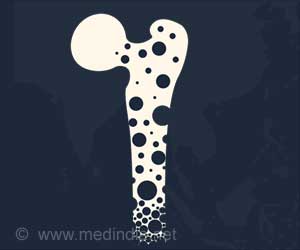The rise in the number of chemotherapy patients has increased the demand for blood components. Hence more people are requested to donate platelets.
The rise in the number of chemotherapy patients has increased the demand for blood components. Hence more people are requested to donate platelets.
According to the Irish Blood Transfusion Service and the Irish Cancer Society (ICS), in the last 5 years, there is a 50% increase in the demand for blood components due to the growing number of new cancer cases. This need can be met by over 22,000 donations of platelets every year. The Irish hospitals receive nearly 90 units of platelets a day or 500 per week from the transfusion service, of which, 90% goes for cancer patient treatment.At the launch of the life-saving platelet donation awareness campaign, Dr William Murphy, national medical director of the IBTS, said, “Platelets are an essential part of blood, enabling it to clot properly.”
There are two methods by which the service collects platelets, pooling and aphaeresis. In the former method, platelets are processed from whole blood. 4 whole blood donations are needed for one dose of platelets. The latter involves separation of platelets from the blood at the time of donation.
He said, “An aphaeresis donation collects the same amount of platelets as those pooled from eight to 12 whole blood donations. The IBTS is endeavouring to limit patients’ exposure to many donors; therefore collecting platelets through aphaeresis is preferable to provide the safest possible product for the patient.”
“The shelf-life of pooled platelets is also only five days and the shelf-life of aphaeresis platelets can be extended from five to seven days.
“At present, only approximately 40% of platelets supplied to Irish hospitals are collected by aphaeresis and it is the aim of the IBTS in association with the Irish Cancer Society to recruit about 2,000 new platelet donors in order to supply 100% aphaeresis platelets within the next three years. We urge the general public to seriously consider signing up as platelet donors,” he said.
Advertisement
The transfusion service revealed that chemotherapy usually destroys the patients’ bone marrow cells where platelets are produced and make the patients susceptible to spontaneous bleeding.
Advertisement
Morgan Hackett, 44, from Dublin, was diagnosed with non-Hodgkin's lymphoma in 2000 and later diagnosed with leukaemia in 2005.
He said: “My leukaemia treatment experience put previous treatments for non-Hodgkin's in the shade. They normally involved five hourly treatments every month during which my white and red blood cell counts and my platelets and neutrophil counts went to zero.
“I could not have committed to my chemotherapy without the blood products including platelets being available. I simply would not have survived.
“I just lay there feeling better when receiving the platelets and feeling worse as my own blood factory could not yet do the job so I received more platelets as required.”
Source-Medindia
GYT











